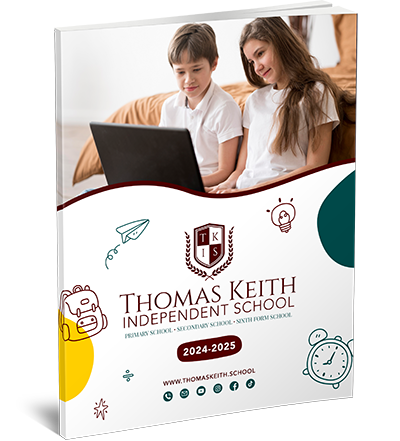
The Sixth Form Course in British Education
Education in the UK evolves with pupils. Every student’s academic abilities are shaped through several periods. One of the most important phases is the two-year “6 form courses” programme, which prepares 16 to 18-year-olds for further education or the job. This essay explores British education’s often-overlooked aspect.
The UK’s Sixth Form programme marks the transition from compulsory to elective higher education. In these critical years, students might choose to pursue traditional “A-Levels,” vocational degrees like BTECs, or the increasingly popular International Baccalaureate (IB).
A-Levels are popular with sixth-formers. Students choose three to four courses to study in greater depth throughout their A-level years, focusing on their interests or professional goals. A-Level disciplines include sciences, humanities, social sciences, and more specialised subjects like politics, economics, and cinema studies. Students may improve their knowledge and abilities with this tailored learning strategy, preparing them for university or future professions.

BTECs provide vocational training. These practical courses are mostly assessed by homework rather than final examinations. Business, health and social care, and hospitality are common BTEC courses. They’re ideal for students who want a technological profession.
However, the International Baccalaureate has a larger curriculum. Language and literature, language acquisition, persons and society, sciences, mathematics, and the arts are its six topic categories. Students also complete Theory of Knowledge, an Extended Essay, and Creativity, Activity, and Service. Thus, the IB is an ideal alternative for students seeking a globally renowned certificate that provides a wide variety of skills and knowledge.
Students develop freedom and responsibility in Sixth Form, regardless of course choice. From school to university, the dynamic changes. While professors and staff help students, they are encouraged to take charge of their learning and develop skills like time management, research, and self-study, which are essential for success in higher education and beyond.
Enrichment events are also available at several Sixth Form. These extracurriculars might include athletics, theatrical organisations, debate societies, and volunteering. Students can develop their hobbies, soft skills, and well-rounded education through such initiatives.
Sixth Form isn’t just academic, contrary to popular opinion. It also provides vocational and technical training for certain sectors. Therefore, Sixth Form offers a wide choice of options for all students, regardless of their future goals, including those who want to go straight into jobs or apprenticeships.
In conclusion, the Sixth Form course is a pivotal stage in UK students’ academic careers. A-Levels, BTECs, and the International Baccalaureate provide students with control over their education. The Sixth Form is about independence, skill development, and expanding perspectives. It’s an empowering stage that prepares students not just for further education or the workforce but also for life.
The Sixth Form Journey: Demystifying the Transition
It’s hard yet gratifying to navigate schooling. Sixth Form education, especially in the UK, is a major milestone. Students can explore several options in this two-year curriculum that bridges compulsory schooling to higher education or the workforce. This essay unravels British education’s unique era.
Sixth Form courses provide students with the freedom to choose their academic and career paths. 16–18-year-olds can study A-Levels, BTECs, or the IB.
A-Level courses focus on certain subjects and are the standard pathway. This method lets students explore their interests, preparing them for university or a profession. While math, physics, and humanities are still popular, economics, media studies, and politics are becoming more popular, reflecting today’s students’ broad interests.
BTECs are for students who know what they want to do and need a more practical, skills-based education. BTECs, unlike A-Levels, give practical experience in health and social care, business, and the arts.
International Baccalaureate students receive a complete education. The IB’s comprehensive curriculum includes six subject groups and three main elements: Theory of Knowledge, an Extended Essay, and Creativity, Activity, and Service. This educational style promotes critical thinking, investigation, and social responsibility, as well as topic knowledge.

In addition to academic opportunities, the Sixth Form programme fosters a university-like learning atmosphere. Self-discipline, time management, and self-study are fostered by student independence. Preparing students for higher education and professional life requires a change from teacher-centric to learner-centric teaching.
Enrichment events are common at Sixth Form. These activities, from sports teams and music organisations to community service, promote personal growth, teamwork, and leadership. They also let students follow their passions, improving their Sixth Form experience.
Finally, Sixth Form education goes beyond academics. Vocational and technical courses that provide industry-specific skills are important in this period. This expands Sixth Form’s options for students who want to enter the workforce or apprenticeships.
In essence, Sixth Form is a fascinating educational voyage with several academic and vocational routes. Academic achievement, independence, talents, and overall growth are all part of this revolutionary phase. Therefore, the Sixth Form programme launches students into their chosen careers with confidence and competence.
Are you contemplating a top-tier educational experience for your child that develops academic brilliance while prioritising overall development? Look no further than Thomas Keith Independent School, a symbol of educational achievement recognised for its rich curriculum and inclusive learning environment.
We provide a wide choice of courses so students may personalise their learning to their interests and goals. Our students benefit from our skilled professors, modern facilities, and devotion to intellectual inquiry.
However, Thomas Keith Independent School provides more than academic achievement. We provide several co-curricular and enrichment programmes to develop well-rounded students ready to take on the world. Our kids are encouraged to participate in athletics, arts, and community service groups.
Join Thomas Keith Independent School and offer your kid the chance to thrive in an atmosphere that stimulates learning, supports uniqueness, and nurtures personal and academic progress.
Be quick! Here begins a fulfilling and engaging education. Contact us today to visit or learn more about our admission process. At Thomas Keith Independent School, let’s create a bright future for your kid.
As students go from compulsory school to higher education, Sixth Form course teachers become crucial. These teachers prepare pupils for university and careers in the last years of secondary education.
Sixth Form instructors help students through A-Level or International Baccalaureate Diploma Programmes, ensuring they learn and master their topics. They provide subject-specific training and assist students in preparing for demanding exams that might determine university admittance.

The Effect of a Sixth-Form Course Teacher
Good Sixth Form teachers mentor and inspire. They promote critical thinking, independent thinking, and intellectual curiosity, which are essential in higher education and beyond. They push their pupils, stimulate inquisitiveness, and offer academic conversation, creating an environment similar to a university.
In addition, Sixth Form lecturers help pupils apply to universities. They help students compose personal statements, make references, and choose courses.
In conclusion, Sixth Form course lecturers bridge the gap between high school and university. They mould young brains, encourage growth, and create the framework for future academic achievement.







